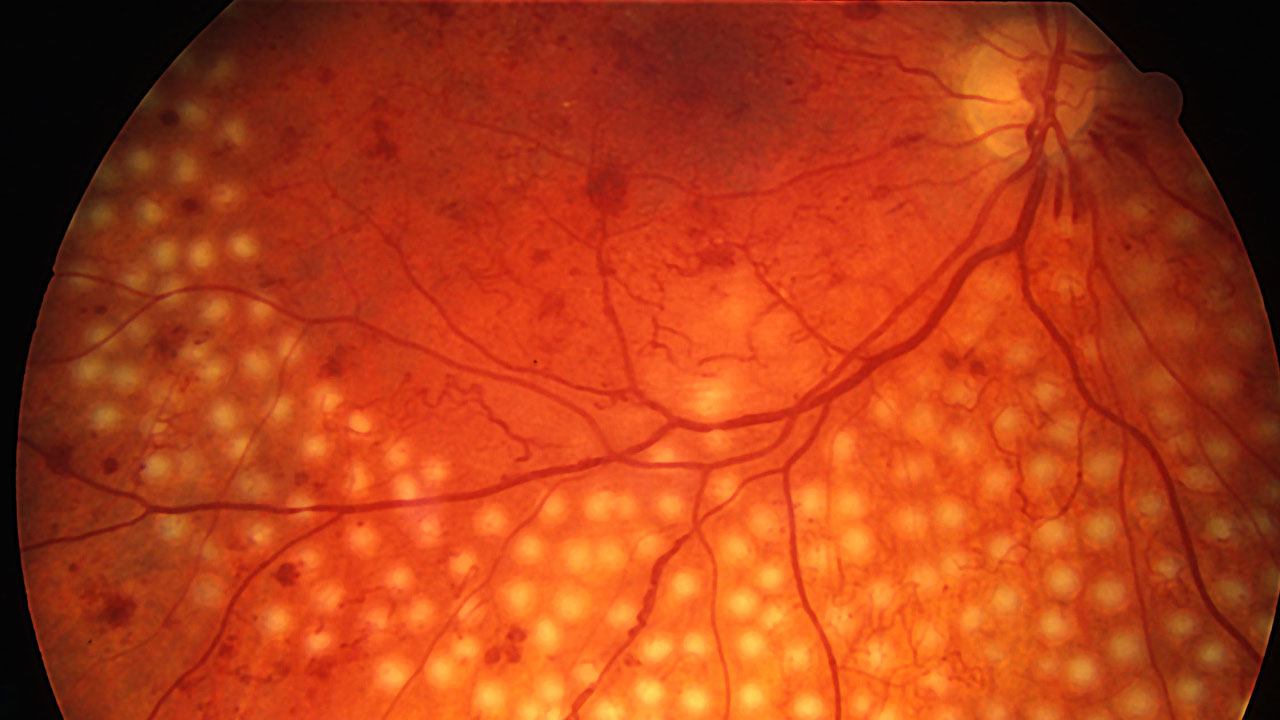- Contact: +91-9270109498 | 020 24352449
- Email: kuldeepdole@yahoo.co.in

Diabetic Retina Treatment in Pune
Dole Eye Hospital offers comprehensive and advanced treatment options for diabetic retinopathy, an eye condition caused by diabetes. The Hospital provides specialized care to patients in Pune seeking effective solutions for diabetic retinopathy.
What is Diabetic retinopathy?
Diabetic retinopathy is a complication of diabetes that affects the eyes. It occurs when high blood sugar levels damage the blood vessels in the retina, the light-sensitive tissue at the back of the eye.
The retina converts light into electrical signals that the brain interprets as visual images. Over time, the damaged blood vessels in the retina may leak fluid or blood, leading to various changes in the eye.
Types Of Diabetic Retinopathy:
There are two main types of diabetic retinopathy:
Non-proliferative diabetic retinopathy (NPDR):
This is the early stage of the disease. The symptoms will be mild or nonexistent. In NPDR, the blood vessels in the retina are weakened.
Proliferative diabetic retinopathy (PDR):
PDR is the advanced stage of diabetic retinopathy. New blood vessels grow on the retina, leak blood, and cause blurred vision, floaters, and vision loss.
Diabetic Retinopathy Symptoms
Diabetic retinopathy can cause a variety of symptoms, including:
- Blurry vision
- Floaters (dark spots or specks that float in your vision)
- Darkening of the vision
- Loss of peripheral vision
- Pain in the eye
Diabetic retinopathy can often be treated with laser surgery or medication injections into the eye.
Diabetic Retinopathy Diagnosis
The following diagnostic tests are commonly used:
- 1. Visual acuity test:Using an eye chart, this test measures how well you can see at various distances.
- 2. Dilated Eye Examination:The doctor will put drops in your eyes to widen your pupils. They will then examine your retina for signs of damage or abnormalities.
- 3. Tonometry:This test measures the pressure inside your eyes, vital for detecting diabetic retinopathy.
- 4. Fundus Photography:In this procedure, special cameras capture detailed retina images, documenting any abnormalities or changes over time.
- 5. Optical Coherence Tomography (OCT):This is useful for detecting macular edema, a common complication of diabetic retinopathy.
- 6. Fluorescein Angiography:This test involves injecting a special dye into a vein in your arm, which travels to the blood vessels in your eyes.
Importance of Timely Treatment for Diabetic Retinopathy
Diabetic retinopathy can be prevented and treated, especially if caught early. It is crucial to start treating diabetic retinopathy as soon as possible. Early detection and intervention can increase your chances of maintaining good vision and preventing vision loss.
Treatment Options for Diabetic Retinopathy
- 1. Blood Sugar Control:This involves following a healthy diet, engaging in regular physical activity, and taking prescribed medications or insulin as a healthcare professional directs.
- 2. Laser Treatment (Photocoagulation):Laser therapy is commonly used to treat diabetic retinopathy. This procedure uses a laser to seal leaking blood vessels and prevent the growth of abnormal blood vessels.
- 3. Anti-VEGF Injections:Anti-VEGF drugs like bevacizumab, ranibizumab, and aflibercept can be injected into the eye to block VEGF's effects. In some cases, these injections aid in reducing the development of abnormal blood vessels and enhancing vision. It might be necessary to administer several injections.
Aftercare and Follow-up
Here are some aftercare tips for diabetic retina treatment:
- Avoid rubbing your eyes.
- Wear sunglasses when you are outside.
- Avoid driving until your vision has returned to normal.
- Take your medications as prescribed by your doctor. This will control your diabetes.
- Get plenty of rest.
- Quit smoking.
- Drink plenty of fluids.
- Eat a healthy diet.
- Manage your stress levels. Stress can worsen diabetic retinopathy, so finding healthy ways to manage stress is essential.
By following these tips, you can help to ensure a smooth and successful recovery from diabetic retina treatment.
